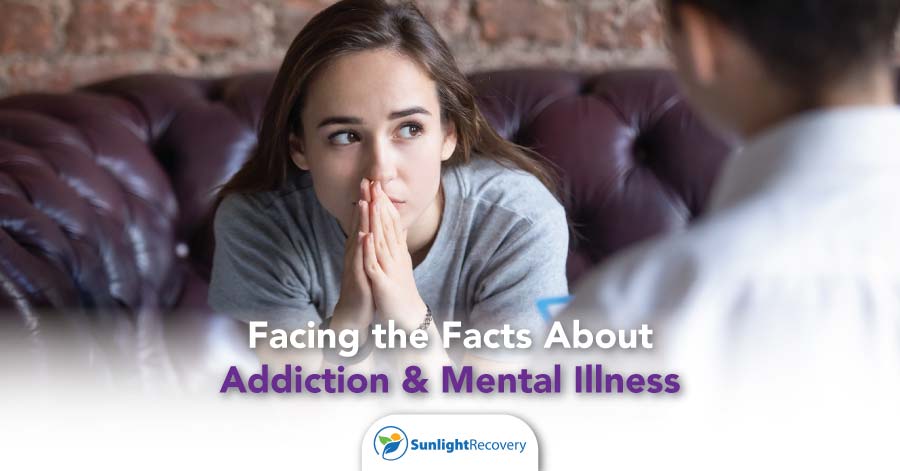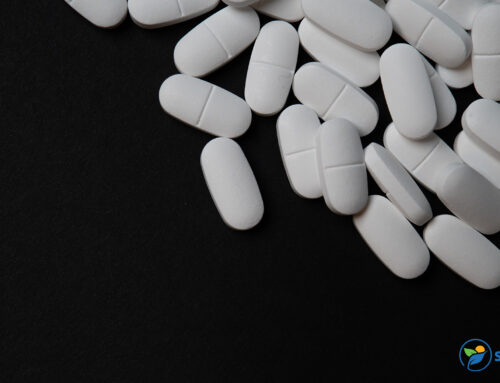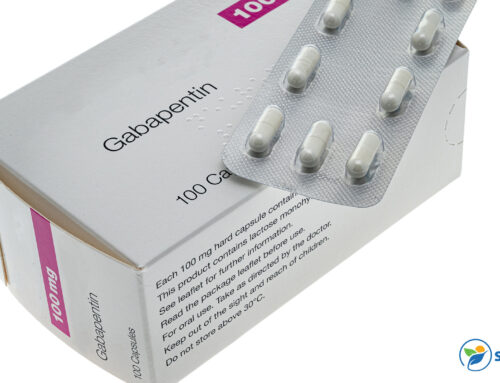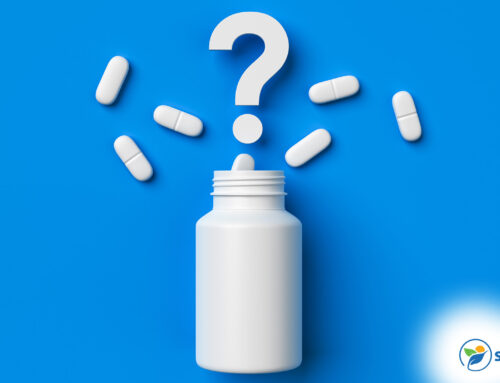Some things just go together naturally. Peanut butter and jelly, salt and pepper, and so on. Unfortunately, some things that go together are for the worse. One of those unfortunate pairs are addiction and mental illness.
Addiction and mental illness are serious issues that unfortunately have become stigmatized in our current social climate. However, various events have happened to bring these two issues into the light. We will explore these details below.
Addiction
Having an addiction to substance is a disease. This is because the substance literally changes the chemical makeup of your brain, until you are no longer the same person. The problem with this is that most people do not see addiction as the disease that it is.
Think of diabetes, for example. There is no question whether or not diabetes is a disease, yet it is often caused by having an unhealthy lifestyle. The same is true for addiction. While the lines on how addiction is formed can be much grayer, in general, we know that addiction is a disease in much the same way that diabetes is a disease.
Despite these things, we can always make the choice to receive help, and this help can only truly be found in professional treatment. At Sunlight Recovery, we believe you cannot separate addiction and mental illness. This is good, because the two are inherently linked.
Mental Illness
Mental health is a very important yet often unknown part of our lives. Mental illness too, can be a disease because it is literally a chemical imbalance in the brain. Thus, simply telling people that they are only bummed out, or that they just need to cheer up, or that they just need to go outside, is often unhelpful. Since mental illness can surface in various different ways, it is important to outline them as follows:
- Depression
- Anxiety
- Post-Traumatic Stress Disorder
- Bipolar Disorder
- ADHD
There are many other types of mental illnesses, however, they can generally be described as a wide range of conditions that affect mood, thinking, and behavior.
Anxiety can be generally specified to a constant feeling of unexplainable stress, or when the reason for said stress does not warrant the physiological response. This stress can come out as social anxiety, where socializing and groups of people give the individual crippling stress. It can be generalized anxiety disorder, where panic can set in for seemingly no reason. Shortness of breath, a lack of sleep, or other feelings of stress can contribute to this. Depression can be defined as a chronic disease in which the individual is constantly in a state of prolonged despair or even lack of emotion and motivation. This is not simply sadness, but sometimes a feeling of numbness, or so on.
Addiction and Mental Illness
The unfortunate fact that many of us have to face is that these mental illnesses and addiction diseases are linked. It is unsure which causes which, however, one thing is clear. When either addiction or mental illness is experienced, there is a higher chance of developing the other counterpart.
This does not mean you simply have two diseases. These two struggles of addiction and mental illness together form what is called a co-occurring disorder, or a dual diagnosis. This is when two diseases occur simultaneously, and strengthen one another, rather than just being there alone.
Co-Occurring Disorders
Mental illness can lead to addiction through stress. Anxiety is a disease that provokes a feeling of stress and panic, thus, a mistaken form of medication is to “chill out” with a substance. Depressants calm the individual down, and although it can feel good in the moment, it creates a dependency on the substance that in the end is not a good medication for said mental illness. Depression, too, leads to an addiction. Depression is inherently exacerbated by isolation, and isolation in itself is a heavy symptom of an addiction. The depressed individual would feel relief when partaking in a substance, however once the effects ware off, the feelings of depression return. Thus, the cycle of holding back depression, engaging in substance use, and the return of depression begins. Dependency is forged, and an addiction is born.
It is also true of addiction to cause a mental illness. Keeping up with an addiction is an extremely stressful way to live. Most individuals will try to keep it a secret, which alone is enough to be extremely stressful. Maintaining relationships, keeping up in career, and spending an insane amount on money just to live, plus an addiction is enough to stress anyone out. Even high-capacity individuals have a difficult time keeping this up. Thus, an anxiety illness is born. Or perhaps the opposite, addiction takes our whole lives away. Relationships, career, or even our home. This causes us to be isolated, and depressed. Depression is easily formed from the remains of a life destroyed by addiction.
While it is unclear whether or not addiction causes mental illness explicitly, or vice versa, it is clear that both can result in each other. Addiction and mental illness deserve to be treated together, and luckily, we at Sunlight Recovery believe they should be. Here are a few ways to have a healthy approach to having a co-occurring disorder.
Living Differently
A few practical ways this can be done are as follows. The first option is holistic care. Holistic care can be experienced through meditation, yoga, journaling, or generally a deeper appreciation of the whole self. It takes both our bodies and inner beings into account. Not simply monks sitting cross legged and humming, but knowing the self, knowing the moment, and being aware of yourself and your surroundings.
There are other ways to take care of yourself holistically in order to improve upon your co-occurring disorder. If you love exercise, get that blood pumping. You do not need a membership to LA Fitness, but instead if you like to bike, go for it. If you like hiking, do that often. Exercise and being in nature have been shown to produce feelings of joy naturally. You can also find a group of people that loves living holistically to support you living a healthier life, and spend more of your time with them.
Getting Help
Are you feeling like you struggle with either of the issues we talked about, or both? Or do you know someone who may need an intervention? We at Sunlight Recovery want to help you in both of these circumstances.
Please do not hesitate to contact us today (844) 426-0790 for more information. Our compassionate team of counselors are standing by to answer any questions you may have. On top of this, check out some of our world-class facilties. We know that taking this step can be difficult, but the first step will get the ball rolling and lead you into a healthier, happier life free from addiction. Let us help you take your life back, today.







Leave A Comment